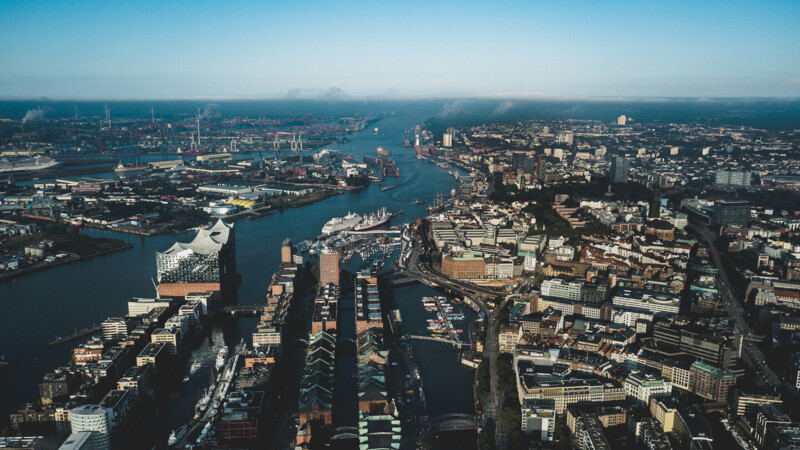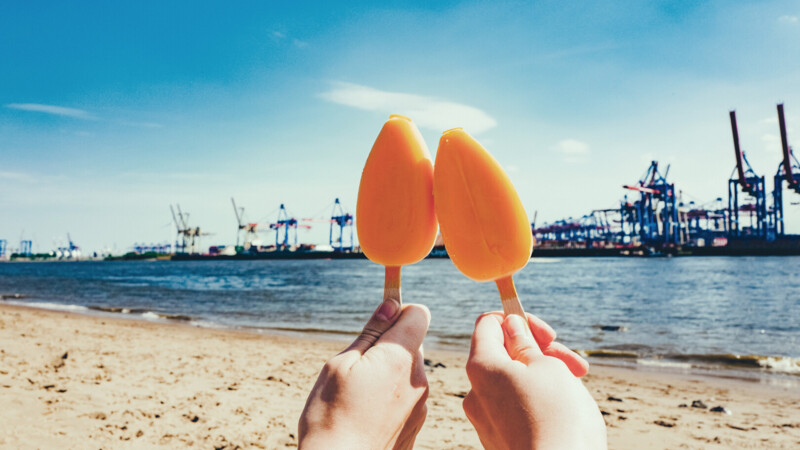"The Fraunhofer CML's diverse research activities render it an important partner and initiator for the maritime industry in Hamburg. Environment-friendly and highly innovative concepts for a modern, efficient port are developed here. We want to strengthen the forward-looking transfer of knowledge by expanding the Fraunhofer CML," said Katharina Fegebank, Senator for Science, Research and Equality. Prof. Raoul Klingner, Director of Research at the Fraunhofer-Gesellschaft, remarked: "Innovation and the rapid transfer of new technologies from research to application are now more important than ever before." Founded in 2010 at the Hamburg University of Technology (TUHH), six Fraunhofer institutes can now be found across the city. A new building is being constructed in Harburg's inland port at a cost of EUR 20 million with construction work due for completion in 2021.
The Hamburg-based Fraunhofer Center for Maritime Logistics and Services is celebrating its tenth anniversary in 2020. Hailed as a catalyst of innovation in the maritime industry, CML is expanding its research with the "Smart Ocean“ programme, which has received around EUR 26 million from the German government and EUR 12 million in funds from the City of Hamburg.
CML - key initiator for maritime industry in Hamburg
More sustainability in shipping
CML is now enhancing its expertise in promising fields of innovation e.g. resource-saving shipping, emission-free cargo handling in ports, innovative concepts for shipbuilding and intelligent logistics processes as part of the senate’s Fraunhofer strategy. Hopes are now high that CML will ultimately become an independent Fraunhofer Institute that benefits the maritime sector and science in Hamburg.
"Smart Ocean" programme
The "Smart Ocean" funding programme develops solutions for improved shipping and maritime logistics and focuses on ecological aspects e.g. alternative drive systems and ship technologies (Green Shipping) simultaneously. Apart from creating new positions for scientists at CML, several potential collaborations with other scientific institutions and within the Fraunhofer-Gesellschaft are emerging as well. This should secure jobs in the maritime industry and ensure the training of urgently-needed scientists and technicians.
Fraunhofer-Gesellschaft in Hamburg
Hamburg is also home to the IME Screening Port of the Fraunhofer Institute for Molecular Biology and Applied Ecology (Aachen), the Center for Applied Nanotechnology (CAN) at the Fraunhofer Institute for Applied Polymer Research IAP (Potsdam), the Application Center for Integrated Local Energy Systems for Sector Coupling (ILES) and the Large Bearing Laboratory (LBL) of the Fraunhofer Institute for Wind Energy Systems (IWES) (Bremerhaven). The independent Fraunhofer Institute for Additive Production Technologies (IAPT) has been located in Hamburg since 2018.
rr/sb/pb
Sources and further information
More
Similar articles

Hamburg Open Science launches new platform

Hamburg remains Germany's smartest city

Clearer labelling needed on ice cream packaging
